Yu-Tung Liu
MSEMG: Surface Electromyography Denoising with a Mamba-based Efficient Network
Nov 28, 2024



Abstract:Surface electromyography (sEMG) recordings can be contaminated by electrocardiogram (ECG) signals when the monitored muscle is closed to the heart. Traditional signal-processing-based approaches, such as high-pass filtering and template subtraction, have been used to remove ECG interference but are often limited in their effectiveness. Recently, neural-network-based methods have shown greater promise for sEMG denoising, but they still struggle to balance both efficiency and effectiveness. In this study, we introduce MSEMG, a novel system that integrates the Mamba State Space Model with a convolutional neural network to serve as a lightweight sEMG denoising model. We evaluated MSEMG using sEMG data from the Non-Invasive Adaptive Prosthetics database and ECG signals from the MIT-BIH Normal Sinus Rhythm Database. The results show that MSEMG outperforms existing methods, generating higher-quality sEMG signals with fewer parameters. The source code for MSEMG is available at https://github.com/tonyliu0910/MSEMG.
SDEMG: Score-based Diffusion Model for Surface Electromyographic Signal Denoising
Feb 06, 2024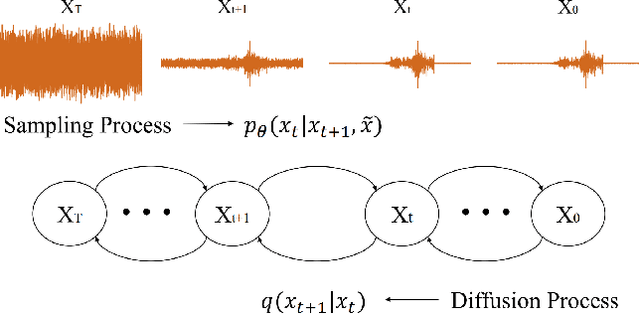

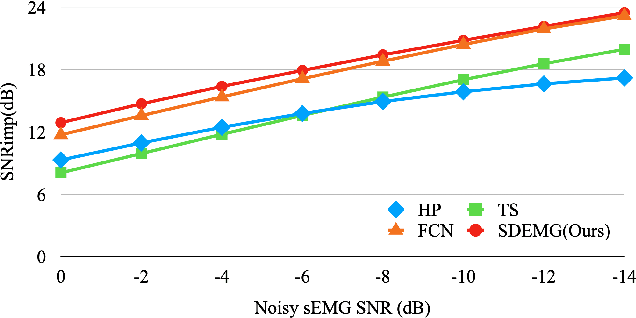
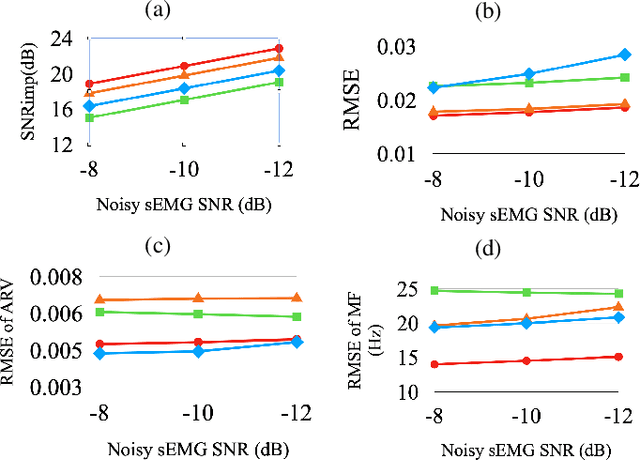
Abstract:Surface electromyography (sEMG) recordings can be influenced by electrocardiogram (ECG) signals when the muscle being monitored is close to the heart. Several existing methods use signal-processing-based approaches, such as high-pass filter and template subtraction, while some derive mapping functions to restore clean sEMG signals from noisy sEMG (sEMG with ECG interference). Recently, the score-based diffusion model, a renowned generative model, has been introduced to generate high-quality and accurate samples with noisy input data. In this study, we proposed a novel approach, termed SDEMG, as a score-based diffusion model for sEMG signal denoising. To evaluate the proposed SDEMG approach, we conduct experiments to reduce noise in sEMG signals, employing data from an openly accessible source, the Non-Invasive Adaptive Prosthetics database, along with ECG signals from the MIT-BIH Normal Sinus Rhythm Database. The experiment result indicates that SDEMG outperformed comparative methods and produced high-quality sEMG samples. The source code of SDEMG the framework is available at: https://github.com/tonyliu0910/SDEMG
Low-Complexity LSTM Training and Inference with FloatSD8 Weight Representation
Jan 23, 2020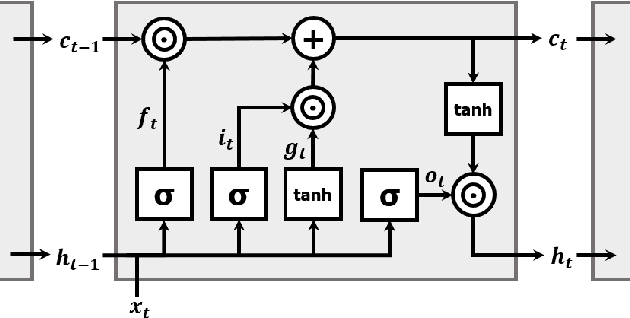


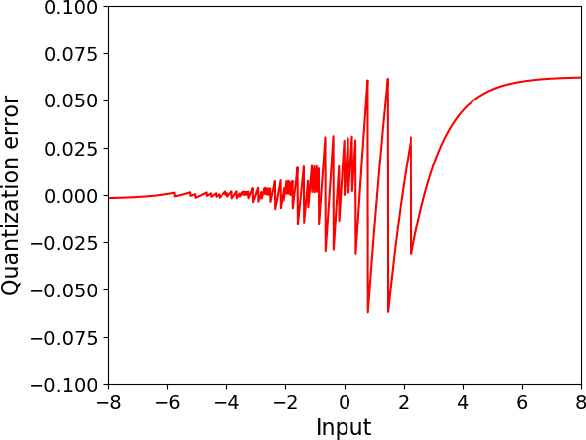
Abstract:The FloatSD technology has been shown to have excellent performance on low-complexity convolutional neural networks (CNNs) training and inference. In this paper, we applied FloatSD to recurrent neural networks (RNNs), specifically long short-term memory (LSTM). In addition to FloatSD weight representation, we quantized the gradients and activations in model training to 8 bits. Moreover, the arithmetic precision for accumulations and the master copy of weights were reduced from 32 bits to 16 bits. We demonstrated that the proposed training scheme can successfully train several LSTM models from scratch, while fully preserving model accuracy. Finally, to verify the proposed method's advantage in implementation, we designed an LSTM neuron circuit and showed that it achieved significantly reduced die area and power consumption.
 Add to Chrome
Add to Chrome Add to Firefox
Add to Firefox Add to Edge
Add to Edge